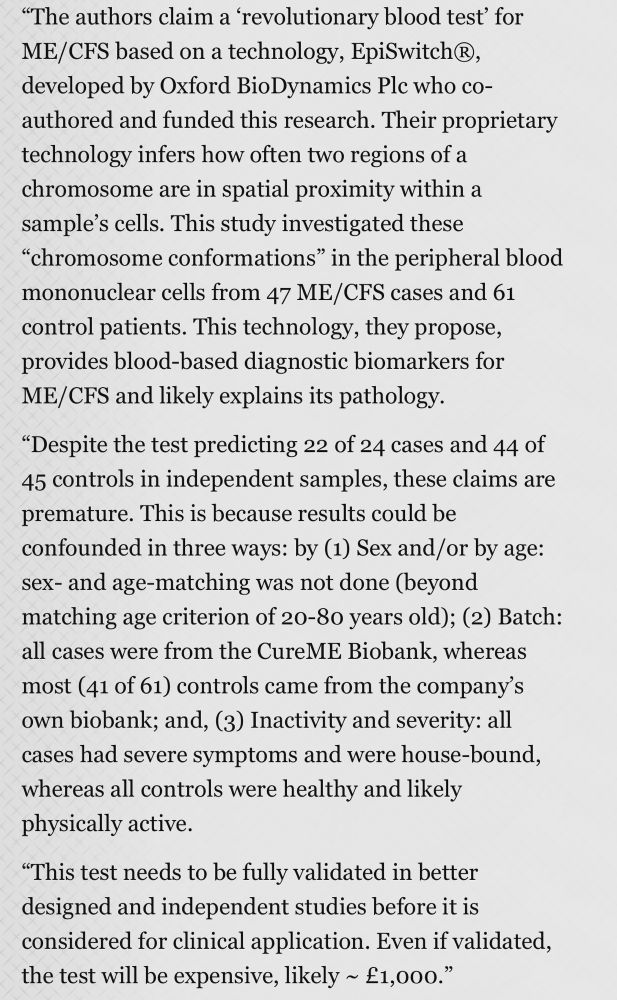Development and validation of blood-based diagnostic biomarkers for Myalgic Encephalomyelitis/Chronic Fatigue Syndrome (ME/CFS) using EpiSwitch® 3-dimensional genomic regulatory immuno-genetic profiling - Journal of Translational Medicine
Myalgic Encephalomyelitis/Chronic Fatigue Syndrome (ME/CFS) is a debilitating, multifactorial disorder characterised by profound fatigue, post-exertional malaise, cognitive impairments, and autonomic dysfunction. Despite its significant impact on quality of life, ME/CFS lacks definitive diagnostic biomarkers, complicating diagnosis and management. Recent evidence highlights potential blood tests for ME/CFS biomarkers in immunological, genetic, metabolic, and bioenergetic domains. Chromosome conformations (CCs) are potent epigenetic regulators of gene expression and cross-tissue exosome signalling. We have previously developed an epigenetic assay, EpiSwitch®, that employs an algorithm-based CCs analysis. Using EpiSwitch® technology, we have shown the presence of disease-specific CCs in peripheral blood mononuclear cells (PBMCs) of patients with amyotrophic lateral sclerosis (ALS), rheumatoid arthritis (RA), prostate and colorectal cancers, diffuse Large B-cell lymphoma and severe COVID-19. In a recent paper, we have identified a profile of systemic chromosome conformations in cancer patients reflective of the predisposition to respond to immune checkpoint inhibitors, PD-1/PD-L1 antagonists, with 85% accuracy. In this Retrospective case/control study (EPI-ME, Epigenetic Profiling Investigation in Myalgic Encephalomyelitis), we used whole blood samples retrospectively collected from n = 47 patients with severe ME/CFS and n = 61 age-matched healthy control patients to perform whole-genome 3D DNA screening for CCs correlating to ME/CFS diagnosis. We identified a 200-marker model for ME/CFS diagnosis (Episwitch®CFS test). First testing on the retrospective independent validation cohort demonstrated a strong systemic ME/CFS signal with a sensitivity of 92% and a specificity of 98%.Pathways analysis revealed several likely contributors to the pathology of ME/CFS, including interleukins, TNFα, neuroinflammatory pathways, toll-like receptor signalling and JAK/STAT. Comparison with pathways involved in the action of Rituximab and glatiramer acetate (Copaxone) (therapies with potential in ME/CFS treatment) identified IL2 as a shared pathway with clear patient clustering, indicating a possibility of a potential responder group for targeted treatment.







